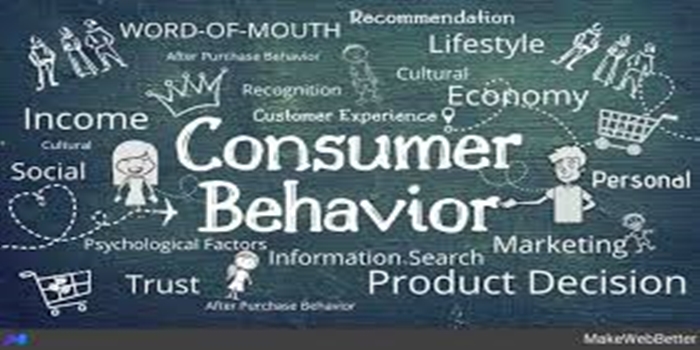In this article, we discussed the meaning of consumer behavior, the types, the factors, we also talked about the benefits, pros and cons.
Definition
Consumer behavior is the actions and decisions that people or households make when they choose, buy, use, and dispose of a product or service. Many psychological, sociological, and cultural elements play a role in how consumers engage with the market.
it is the study of how people buy, use, and dispose of products and services. It also includes how people decide to spend their time and money.
The four main types of consumer behavior are:
Complex buying behavior
When a buyer is highly involved in the purchase, such as when buying a car or home
Dissonance-reducing buying behavior
When a buyer wants to reduce dissonance or tension, such as when choosing between similar products
Habitual buying behavior
When a buyer buy based on brand familiarity, such as when buying a brand of coffee
Variety-seeking buying behavior
When a buyer seeks out new products or experiences
These types of consumer behavior reflect different levels of involvement and risk.
Consumer behavior is influenced by many factors, including:
Psychological factors
Motivation: Drives people to meet their needs
Learning: Based on past experiences and external inputs
Attitudes and beliefs: Formed over time, these dictate how people feel about products or brands
Perception: How consumers perceive a product or brand
Social factors
Family: How family members influence each other’s purchasing decisions
Reference groups: How people in groups like family, friends, and sports influence each other’s purchasing decisions
Culture: The values, norms, and practices that guide behavior within a society
Social class: How social class influences consumer behavior
Personal factors
Age: How age influences consumer behavior
Gender: How gender influences consumer behavior
Background: How background influences consumer behavior
Interests: How interests influence consumer behavior
Opinions: How opinions influence consumer behavior
Economic factors
Income level: How income level influences consumer behavior
Living conditions: How living conditions influence consumer behavior
Other factors that influence it include marketing campaigns, promises of personal satisfaction, and changes in taste and fashion.
Benefits of studying consumer behavior:
Targeted marketing:
By analyzing consumer preferences, businesses can create personalized marketing campaigns that resonate with specific customer segments, leading to higher engagement and conversion rates.
Product development:
Understanding consumer needs and motivations allows companies to design products and services that better address customer pain points, leading to improved product satisfaction.
Market trend identification:
Analyzing it can help businesses predict future market trends and adapt their strategies accordingly.
Competitive advantage:
By deeply understanding, businesses can differentiate themselves from competitors by offering products and services that better align with customer wants.
Customer retention:
Building strong customer relationships through understanding their needs and providing relevant experiences leads to increased customer loyalty and retention.
Price optimization:
Analyzing consumer price sensitivity allows companies to set optimal pricing strategies that maximize profitability while remaining competitive.
Improved brand image:
By addressing customer concerns and aligning brand messaging with consumer values, businesses can build a positive brand reputation.
Data-driven decision making:
Consumer behavior research provides valuable data that can be used to make informed business decisions based on real customer insights.
The primary advantage of studying consumer behavior is that it allows businesses to deeply understand customer needs and desires, enabling them to develop products and marketing strategies that better align with those needs, leading to increased customer satisfaction and market competitiveness; however, disadvantages include the complexity of human psychology, potential oversimplification of it, and the difficulty in predicting individual consumer choices accurately, which can lead to ineffective marketing strategies if not carefully considered.
Advantages of studying consumer behavior:
Improved product development:
By understanding consumer preferences, businesses can design products and services that directly address customer needs, leading to higher customer satisfaction and loyalty.
Targeted marketing strategies:
Analyzing consumer behavior allows for precise market segmentation, enabling businesses to tailor marketing campaigns to specific customer groups.
Market trend prediction:
Studying it helps anticipate market shifts and emerging trends, enabling proactive decision-making by businesses.
Competitive advantage:
Companies that deeply understand consumer can gain a competitive edge by offering products and services that better align with customer expectations.
Enhanced customer experience:
By understanding consumer motivations and pain points, businesses can design customer interactions that are more positive and satisfying.
Disadvantages of studying consumer behavior:
Complexity of human psychology:
Predicting consumer can be challenging due to the intricate nature of human decision-making and the influence of various psychological factors.
Generalization:
Consumer behavior models may oversimplify complex motivations and behaviors, potentially leading to inaccurate interpretations.
Individual variations:
Consumer behavior can vary significantly between individuals, making it difficult to generalize trends across large populations.
Changing consumer trends:
Consumer preferences can evolve rapidly, requiring constant monitoring and adaptation of marketing strategies.
Ethical concerns:
Excessive reliance on it to analysis can lead to controlling marketing devices that exploit customer weaknesses.
Conclusion
Consumer behavior states the study of how individuals, groups, and organizations make decisions regarding the acquisition, use, and disposal of goods and services, surrounding the psychological, social, and environmental factors that influence their buying choices, including the decision-making process, evaluation of alternatives, and post-purchase behavior; essentially, it analyzes why and how people buy things.
READ: Online Consumer Behavior


